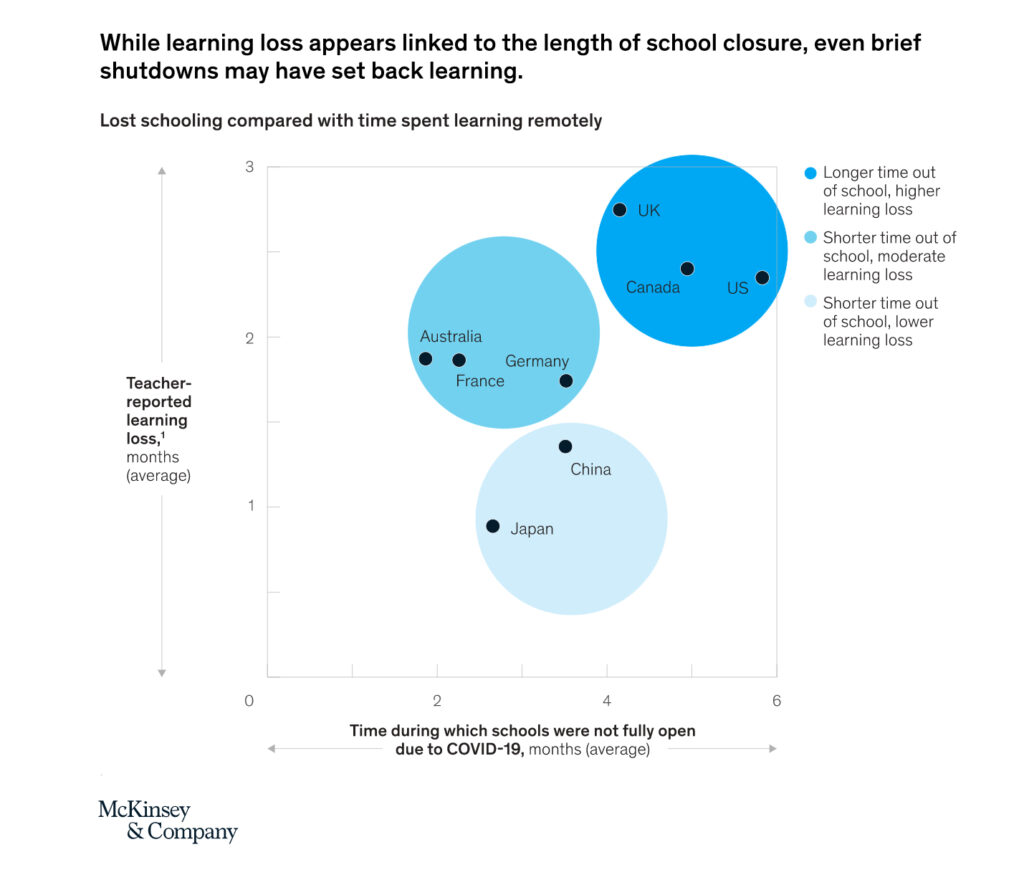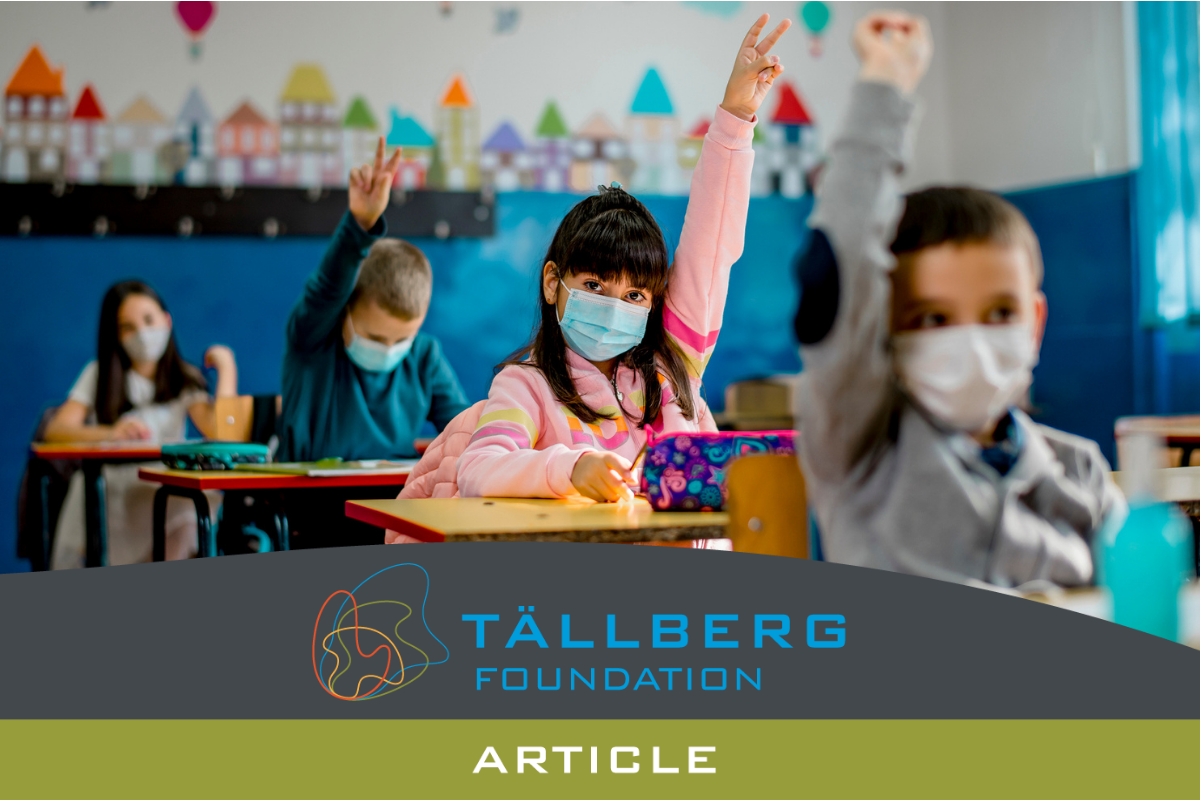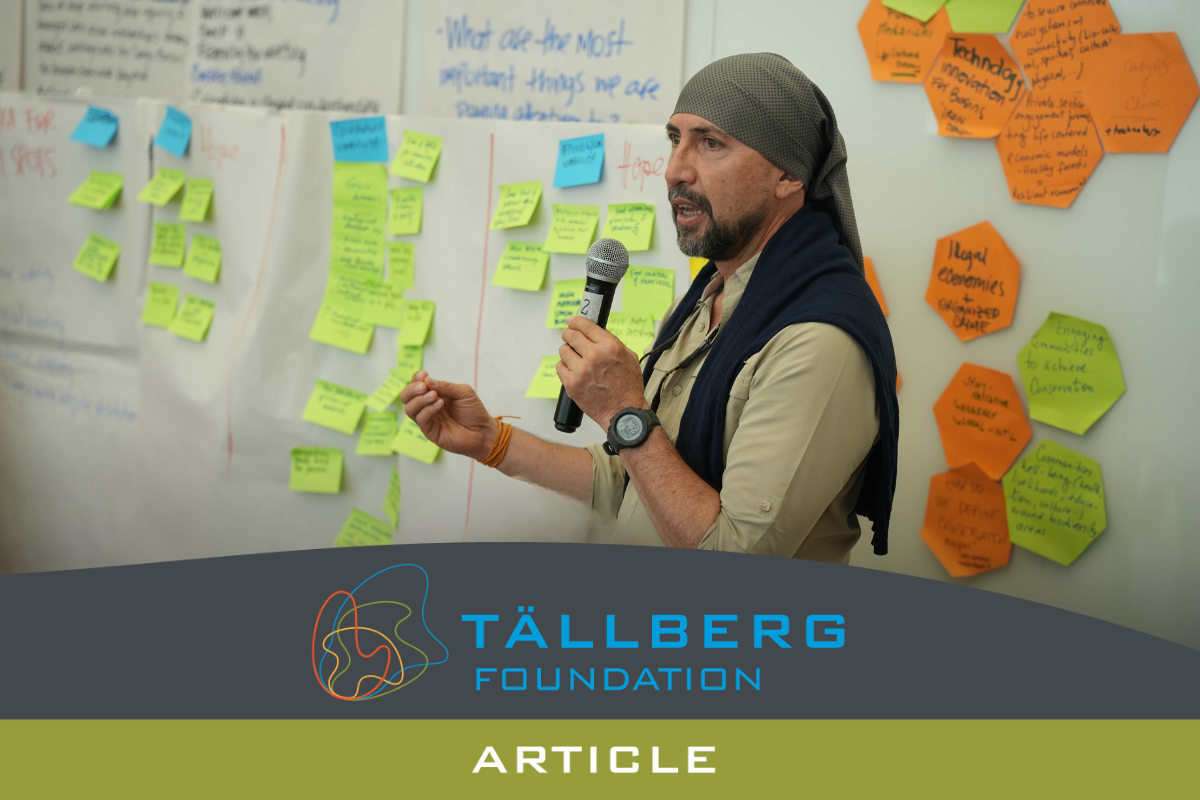“I do fear we will look back on the disruption caused by the pandemic on children’s education—which has been at unprecedented scale, length and duration—we will be looking on this period as indeed something that will be with us for many years to come.”
As the intensity of the pandemic slowly and unevenly recedes, a lot of damage is being left in its wake. Of course, the death toll gets the daily headlines, but around the world health care systems are broken, whole societies are buckling, mental health indicators suggest that so-called “toxic stress” continues to have a huge impact—the list goes on. But near the top of that list should be the impact on children.
“There isn’t a community, there isn’t a household, there isn’t a country that has not had their education system and schooling affected…1.6 billion children…at the height, that was last May, June,” says Robert Jenkins. “We still have today over 30 countries where schools remain closed. We have about two thirds of the student population, close to a billion students that are still facing some form of disruption in their schooling.”
Jenkins, one of UNICEF’s top education experts, has worked with schools and children around the world, particularly in low- and middle-income countries. He has seen other crises, including some caused by pandemics. However, the size and duration of this crisis is “unprecedented;” even worse, it came at a time when many countries were already facing huge problems in their schools. “The world was experiencing a global learning crisis before the disruption caused by the pandemic. 53% of 10 to 14 year olds in low- and middle-income countries [could] not understand a simple paragraph; were not able to read.” So, he concludes, “If we do not seize this opportunity to introduce more modern, innovative ways of learning, then children will come back into and sit in the same classrooms with the same delivery mechanisms.” And, presumably, the same appalling results.

But Jenkins thinks there could be a silver lining in the crisis, since “there’s a lot of attention, a lot of resources, a lot of energy, a lot of interest in supporting the reopening of schools.” Moreover, “the education systems around the world were in need of innovative approaches, of disruption.”What COVID disrupted, he is optimistic that educators, teachers, governments, corporations, communities and parents can reimagine. “I don’t think there’s a single country now as a result of the disruption caused by the pandemic that hasn’t been innovating in some way to provide remote learning,” he says. He points to the broad recognition that education needs not just resources, but new thinking, and insists the “reconfirmation and a recommitment to change and innovate within the education space is incredible.”
By way of example, Jenkins cites the Learning Passport developed in collaboration by UNICEF and Microsoft. Originally imagined as a digital remote learning platform, after the pandemic hit it was expanded to facilitate country-level curriculum for children whose schools were closed. “It’s now being introduced into the school systems as students return,” as part of a much needed effort to bridge children back into the classroom.
He says there are many other examples, “the full range of high-tech digital learning solutions, like world-class learning management systems, broadcasting through television, broadcasting through radio. And also low tech, no tech solutions like supporting teachers to deliver learning materials to homes.” As excited as he is about these initiatives, Jenkins admits to a major worry: “How do we translate these innovations and world-class tools so that they reach every child?”
Indeed, Jenkins points out that “the pandemic has put a spotlight on the disparities that exist in education…the vulnerable children, marginalized children before the pandemic have been disproportionally impacted.” To put a number on the problem: UNICEF estimates that 460 million children had no access to remote learning at all when their schools were closed. Inevitably, their learning has suffered, and so have their life prospects.
“In previous school closures, like in West Africa as a result of the Ebola pandemic—in which some countries closed [schools] six months, one country, for nine months—we saw the impact in the hundreds of thousands of children in those countries who did not return to school.” Today, “We have estimated that at least 24 million children are [now] at risk of dropping out.” Of course, these children tend to be concentrated in low income and fragile countries and the poorest communities within countries. The vicious cycle that defined too many of their lives was only intensified by the pandemic.
Jenkins emphasizes that those who come back to the classroom also face profound challenges as a result of such an extended interruption—especially one caused by a global pandemic with huge health, social, psychological and economic impacts. “I can’t overstate the importance of looking at each child comprehensively and holistically, enabling them to have the mental and psychosocial support after such prolonged absence. Bridging them back to a previously familiar ground of a school will necessitate proactively introducing them back into that routine.”
For Jenkins that means recognizing that, “If children come back into school and don’t receive the support that they need in other parts of their lives…if they have a sense of fear, if they need nutritional support, if they need support for their mental health or psychosocial needs or menstrual hygiene” they won’t succeed—or maybe stay—in the classroom.
But Jenkins believes that enough leaders in enough places understand what’s at risk. “I’m energized and optimistic about the attention that education is now receiving. I’m hopeful that this recognition of the importance that schools play in each individual child’s life, but also in communities and in societies more generally, will generate the tangible benefits and actions required on the ground for children all over the world.”
Let’s hope he is right—for them, but also for us.
*UNICEF’s motto
Let us know what YOU think and leave your comment HERE
Robert Jenkins recently spoke with Alan Stoga as part of the Tällberg Foundation’s “New Thinking for a New World” podcast series. Hear their whole conversation here or find us on a podcast platform of your choice (Apple Podcast, Spotify, Acast, Stitcher, Libsyn, etc).
 Robert Jenkins, Chief, Education and Associate Director, Programme Division, UNICEF Headquarters, joined UNICEF in 1995. He brings over 20 years of experience in international development and humanitarian programming in Africa, Asia and the Middle East.Prior to his current appointment, Mr. Jenkins served as the UNICEF Representative, Jordan, from 2014-2019, and Deputy Director, Division of Policy and Strategy in UNICEF Headquarters from 2009-2014.
Robert Jenkins, Chief, Education and Associate Director, Programme Division, UNICEF Headquarters, joined UNICEF in 1995. He brings over 20 years of experience in international development and humanitarian programming in Africa, Asia and the Middle East.Prior to his current appointment, Mr. Jenkins served as the UNICEF Representative, Jordan, from 2014-2019, and Deputy Director, Division of Policy and Strategy in UNICEF Headquarters from 2009-2014.
From 1995-2009, Robert Jenkins served with UNICEF in programme and management positions in Uganda (1995-1997), Bangladesh (1997-2000), Myanmar (2000-2003), India (2003-2006) and Mozambique (2006-2009).
Mr. Jenkins earned a Doctor of Education Degree from the University of Bath and a Master’s Degree from the London School of Economics in the United Kingdom.
Mr. Jenkins is married and has a daughter and a son. He is a Canadian citizen.





0 Comments